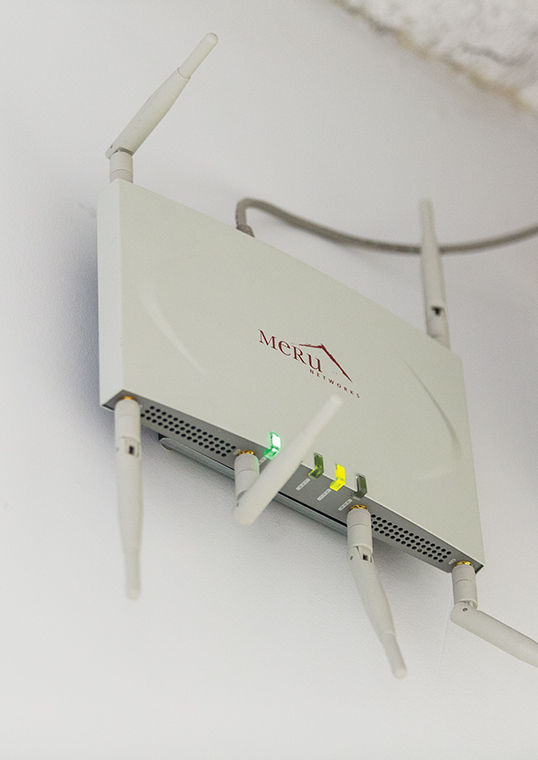College Wi-Fi connectivity said to be growing worse
Technologically, Columbia is up to 15 years behind, said Byron Nash, chief information officer and associate vice president of Technology Services on Nov. 13.
November 30, 2015
Many Students and faculty contend that the college’s Wi-Fi network has been more unreliable and difficult to connect to this semester than in previous semesters.
As reported Nov. 23 by The Chronicle, the problems students and faculty experience with the Wi-Fi network at the college primarily stem from Columbia being as far as 15 years behind technologically, according to Byron Nash, chief information officer and associate vice president of Technology Services.
“Probably the most obvious sign that things are not well is our network,” Nash said at a Nov. 13 Faculty Senate meeting. “Our wireless is about two generations behind.”
Nash was not made available for comment for this story.
Stephanie Frank, a lecturer in the Humanities, History & Social Sciences Department, said she uses Wi-Fi during her classes to show video clips and news segments relevant to her courses. She said it is frustrating when technological problems inhibit her ability to teach her class as planned.
“You have a limited amount of class time, and you do not want to be wasting it,” Frank said. “If the activity is really important, then I will troubleshoot and do whatever needs to happen. Sometimes it is just not worth it.”
Cory Griffith, a junior theatre major, said in most of her courses, she has been expected to use Wi-Fi in some capacity, and the network seems less reliable and more difficult to connect to than in the past.
“[This semester] sometimes it works, sometimes it does not,” Griffith said. “Last semester I did not have a problem with it at all.”
However, not all agree. Chris Huizenga, a lecturer in the Communication and Media Innovation Department who teaches a social media course that requires Wi-Fi, said he has not experienced connection problems.
“I would actually say this [semester] has been an improvement in terms of the overall reliability of the wireless network,” Huizenga said.
During the Faculty Senate meeting, Nash said the college has recently completed negotiations to purchase a new fiber ring that will improve the performance of the Wi-Fi network.
Huizenga said having a reliable Wi-Fi network is important for teaching his class because his students are working in real- time with real events and clients.
“The students in my class learn by doing, so we are working on real projects for real clients,” Huizenga said. “We have to know what is going on and how people [are] feeling and reacting.”
A reliable Wi-Fi network is an important resource for students and faculty to have access to during their time on campus, both in and outside the classroom, Frank said.
“[Wi-Fi consistency] is important for the classroom, but it is also just [as] important for the campus,” Frank said.








